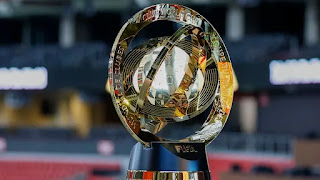The Dying Genre: What Happened to Horror and Haunted Movies?
The Dying Genre: What Happened to Horror and Haunted Movies?
Horror — once a genre that sent chills down our spines and left us double-checking the locks at night — seems to be losing its power in today’s era of streaming and fast content. While horror and haunted movies still get made, there’s a growing sense among audiences that the genre isn’t what it used to be. So, what exactly is happening? Why does modern horror often feel dull, repetitive, or simply not scary?
Let’s explore what’s killing the scare.
Then vs. Now: A Tale of Two Horrors
The golden age of horror, particularly from the 70s to early 2000s, gave us timeless classics like The Exorcist, The Shining, Poltergeist, and The Ring. These movies didn’t rely on jump scares alone. They used psychological tension, eerie music, storytelling depth, and atmosphere to make viewers feel fear rather than just react to it.
Contrast that with many modern horror films and series, which seem more focused on aesthetics than substance. Today’s haunted movies often start with an eerie family moving into a new house, include a haunted object or a curse, and end with a rushed exorcism or reveal. It’s a formula that’s been stretched thin.
Where earlier films built dread over time, many recent horrors throw in a jump scare every ten minutes — trading suspense for momentary shock.
Audience Tastes Have Evolved
Another reason horror seems to be dying is that the audience has changed. Today’s viewers are more aware, more skeptical, and harder to shock. The age of the internet has exposed people to extreme content, true crime, and real-life horrors that often feel scarier than anything on screen.
Additionally, streaming platforms have created a culture of binge-watching and fast content. Horror — which thrives on buildup and atmosphere — struggles in a world where content is expected to be quick, easily consumable, and constantly entertaining.
Repetitiveness: Horror’s Silent Killer
One of the most common complaints about horror today is its repetitiveness. Haunted dolls, demonic possessions, cursed artifacts — how many variations of these can we take before they all blur together?
Franchises like The Conjuring Universe started strong but gradually turned formulaic. Netflix horror series often begin with promise but lose steam halfway, resorting to clichéd backstories or shallow twists.
Where are the risks? The originality? The fresh voices? Horror, by nature, should be unpredictable and unsettling — but when the scares follow the same beats every time, the fear fades.
A Few Bright Spots
To be fair, not all is lost. Films like Hereditary, The Babadook, Get Out, and The Haunting of Hill House have shown that horror can still evolve and surprise. These works use horror as a tool to explore deeper psychological or social themes. They're not just about ghosts or gore — they’re about trauma, grief, racism, or mental illness. That’s when horror feels fresh again.
What Horror Needs to Survive
For the genre to thrive again, horror needs:
-
Original storytelling – Avoid the overused tropes. Take risks.
-
Character depth – We fear more when we care about who’s in danger.
-
Atmosphere over effects – Go back to building dread, not just jump scares.
-
New monsters – Find fears that reflect our current world, not just the supernatural.
-
Patience – Let the story unfold slowly. Not every scare needs to come with a loud noise.
Final Thoughts
Horror isn’t dead, but it’s certainly on life support. Haunted movies and series must evolve if they want to scare a generation that has seen it all. The audience is craving smart horror, not just scary makeup and flickering lights. If creators are willing to dig deeper, break patterns, and trust the intelligence of viewers, horror can rise again — stronger, scarier, and more relevant than ever.
Until then, the true terror might just be watching another haunted house movie with the same tired ending.




.jpg)
Comments
Post a Comment